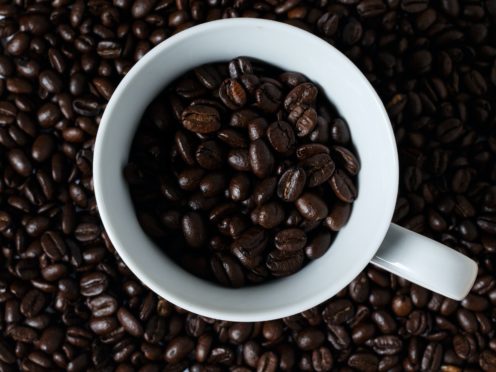Women who drink coffee have less body fat than those who do not, a new study suggests.
Higher coffee consumption was associated with significantly lower total body fat among women, researchers found.
The authors examined data on the body and trunk fat of almost 6,000 US adults aged 20 to 69 and their coffee consumption.
The study, published in The Journal of Nutrition, did not find the same response among men.
But a more specific look at the different age groups revealed that among men, those aged 20-44 who drank two to three cups per day had 1.3% less body fat compared those in the same age bracket who did not consume coffee.
The link was observed in both caffeinated coffee and decaffeinated coffee among women, but not for men.
A break down of age differences among women found that those aged 20 to 44 who drank two to three cups of coffee a day had lower total body fat and trunk body fat than those who did not drink coffee.
And those aged 45 to 69 who drank four or more cups of coffee had lower total and trunk body fat than those who did not drink coffee.
The authors wrote: “These findings suggest that coffee and/or its effective ingredients could be integrated into a healthy diet strategy to reduce the burden of chronic conditions related to the obesity epidemic.”
Dr Lee Smith, reader in public health at Anglia Ruskin University and senior author of the study, said: “Our research suggests that there may be bioactive compounds in coffee other than caffeine that regulate weight and which could potentially be used as anti-obesity compounds.
“It could be that coffee, or its effective ingredients, could be integrated into a healthy diet strategy to reduce the burden of chronic conditions related to the obesity epidemic.
“It is important to interpret the findings of this study in light of its limitations – the study was at a specific point in time so trends cannot be established. However, we don’t believe that someone’s weight is likely to influence their coffee consumption.”
